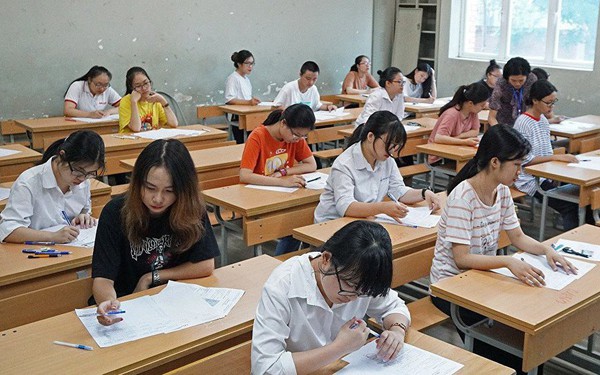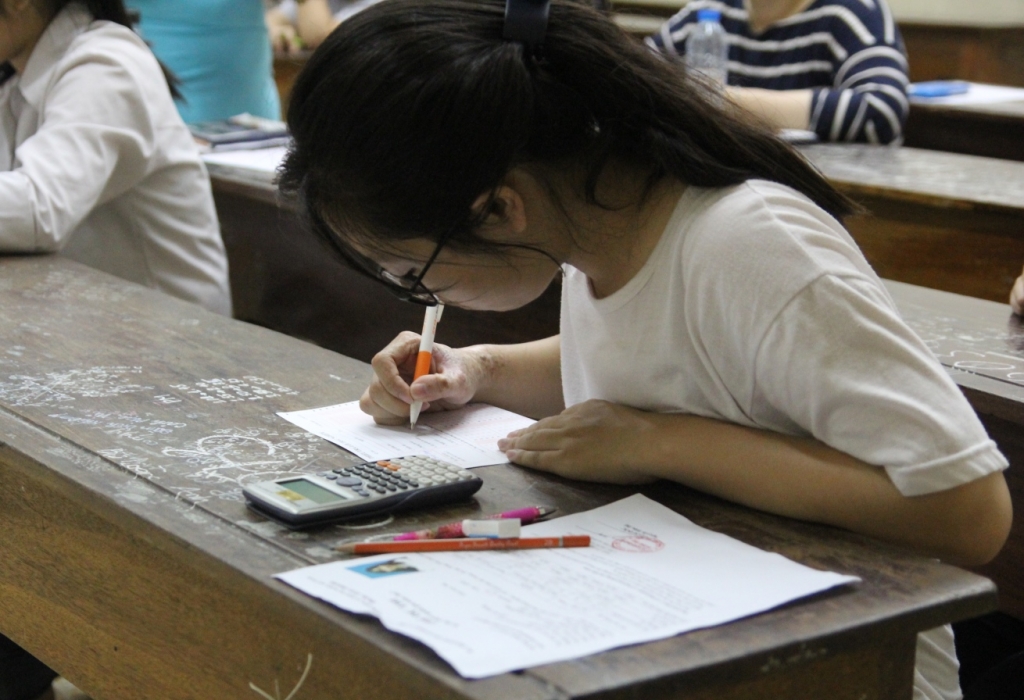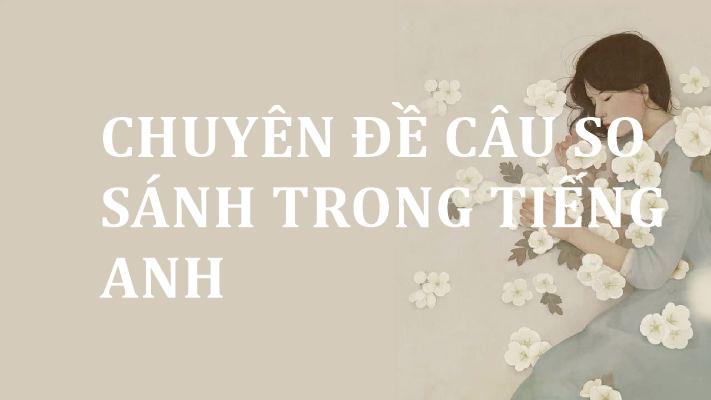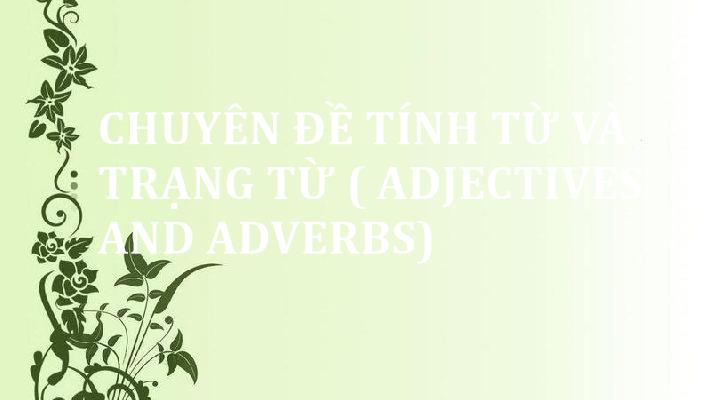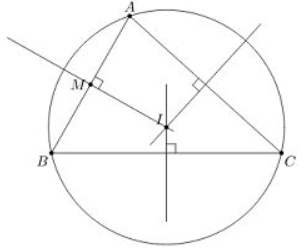I – Theory (Lý thuyết)
1. Uses (cách dùng)
+) Diễn tả một sự việc, hành động đang xảy ra tại một thời điểm xác định trong quá khứ. Thời điểm đó được đo bằng:
• at + giờ/ phút (at 6 a.m yesterday)
Eg: She was having dinner at 6 p.m yesterday.
• Một hành động quá khứ đơn xảy ra sau, đan xen.
Eg: When he phoned her, she was having a bath.
hành động xảy ra sau, đan xen
+) Diễn tả hai hay nhiều sự việc đang xảy ra đồng thời tại một thời điểm xác định trong quá khứ (thường đi với từ “while”)
Eg: At 7 a.m yesterday , while I was going to school , my mother was doing the housework, my father was working in the garden.
+) Diễn tả một sự việc bất thường ở quá khứ
Eg: He often went to work by bus, but on that day, he was going to work by taxi.
+) Diễn tả một hành động, một thói quen xấu liên tục xảy ra gây khó chịu bực mình cho người khác, thường đi với các từ “always, forever, constantly, continuously”
Eg: She was always singing all day.
2. Forms (cấu trúc)
(+) S + was/ were + V-ing…
(-) S + wasn’t/ weren’t + V-ing…
(?) Was/ were + S + V-ing…
(?) Wh_ + was/ were + S + V-ing…
Eg: (+) I was going to school at 11.30 yesterday.
(-) I wasn’t going to school at 11.30 yesterday.
(?) Were you going to school at 11.30 yesterday?
(?) What time were you going to school yesterday?
3. Quy tắc thêm “ing”
-) thông thường chỉ việc thêm "ing" sau động từ: learning, cooking, speaking...
-) tận cùng là “y” +ing : study => studying
play => playing
-) tận cùng là “e” câm thì bỏ “e” thêm “ing”
Eg: write => writing make => making
have => having take => taking
drive=> driving
Trừ: age => ageing
dye => dyeing
singe => singeing
-) nếu từ có 1 âm tiết hoặc 2 âm tiết nhưng trọng âm rơi vào âm tiết thứ 2 mà trước phụ âm cuối chỉ có 1 nguyên âm thì gấp đôi phụ âm cuối rồi thêm “ing”
sit => sitting control => controlling
run => running occur => occurring
swim => swimming admit => admitting
Đặc biệt: travel => traveling/ travelling
-) tận cùng là “ie” => y +ing
die => dying
lie => lying
-) tận cùng là "w" => không gấp đôi
Eg : draw => drawing
4. Một số động từ không thường dùng ở các thì tiếp diễn
- các động từ này chỉ tình cảm, cảm xúc, suy nghĩ, thuộc về tinh thần, chỉ sở hữu, chỉ liệt kê miêu tả, chỉ bao gồm:
astonish, appear, believe, belong, consist, contain, concern, depend, deserve, doubt, fit, find, guess, hate, impress, imagine, include, know, like, love, lack, mean, matter, need, owe, prefer, please, possess, realize, remember, resemble, satisfy, surprise, suppose, sound, seem, understand, want, wish.
II – Bài tập
Bài 1: Chuyển các câu sau sang phủ định và nghi vấn:
1. I was taking a shower at 5 p.m yesterday.
(-)
(?)
(?)
2. They were playing football when the teacher came.
(-)
(?)
(?)
3. While they were singing, she was crying.
(-)
(?)
(?)
4. Wild animals were becoming extinct because their habitat was being destroyed.
(-)
(?)
(?)
Bài 2: Điền dạng đúng của động từ trong ngoặc ở thì quá khứ tiếp diễn:
1. The children were frightened because it (get) dark.
2. He usually wears sandals but when I last saw him he (wear) boots.
3. My wife and I (talk) about you the other day.
4. When I first met him he (study) painting.
5. Where he (live) when you saw him last?
6. While we (fish) someone came to the house and left this note.
7. Just as I (wonder) what to do next, the phone rang.
8. The traffic (make) so much noise that I couldn’t hear what he (say).
9. He had a bad fall while he (repair) his roof.
10. She (stand) at the bus stop. I asked her what bus she (wait) for.
Bài 3: Điền dạng đúng của động từ trong ngoặc ở thì quá khứ đơn hoặc thì quá khứ tiếp diễn:
1. I lit the fire at 6.00 and it (burn) brightly when Tom (come) in at 7.00.
2. When I (arrive), the lecturer (write) the lesson on the board.
3. I (make) a cake when the light (go) out. I (have) to finish it in the dark.
4. I (not want) to meet Paul, so when he (enter) the room, I (leave).
5. I (share) a flat with him when we were students. He always (complain) about my untidiness.
6. He suddenly (realize) that he (travel) in the wrong direction.
7. I just (open) the letter when the wind (blow) it out of my hand.
8. What you (think) of his last book?
→ I (like) it very much.
9. He was very polite. Whenever his wife entered the room, he (stand) up.
10. When I (look) for my passport I (find) this old photograph.
Đáp án:
Bài 1:
1. I was taking a shower at 5 p.m yesterday.
(-) I wasn’t taking a shower at 5 p.m yesterday.
(?) Were you taking a shower at 5 p.m yesterday?
(?) What were you doing at 5 p.m yesterday?
2. They were playing football when the teacher came.
(-) They weren’t playing football when the teacher came.
(?) Were they playing football when the teacher came?
(?) When were they playing football?
3. While they were singing, she was crying.
(-) While they were singing, she wasn’t crying.
(?) Was she crying while they were singing?
(?) What was she doing while they were singing?
4. Wild animals were becoming extinct because their habitat was being destroyed.
(-) Wild animals weren’t becoming extinct because their habitat wasn’t being destroyed.
(?) Were wild animals becoming extinct because their habitat was being destroyed?
(?) Why were wild animals becoming extinct?
Bài 2:
1. The children were frightened because it (get) dark.
was getting
2. He usually wears sandals but when I last saw him he (wear) boots.
was wearing
3. My wife and I (talk) about you the other day.
were talking
4. When I first met him he (study) painting.
was studying
5. Where he (live) when you saw him last?
was he living
6. While we (fish) someone came to the house and left this note.
were fishing
7. Just as I (wonder) what to do next, the phone rang.
was wondering
8. The traffic (make) so much noise that I couldn’t hear what he (say).
was making was saying
9. He had a bad fall while he (repair) his roof.
was repairing
10. She (stand) at the bus stop. I asked her what bus she (wait) for.
was standing was waiting
Bài 3:
1. I lit the fire at 6.00 and it (burn) brightly when Tom (come) in at 7.00.
was burning came
2. When I (arrive), the lecturer (write) the lesson on the board.
arrived was writing
3. I (make) a cake when the light (go) out. I (have) to finish it in the dark.
was making went had
4. I (not want) to meet Paul, so when he (enter) the room, I (leave).
didn’t want entered left
5. I (share) a flat with him when we were students. He always (complain) about my untidiness.
shared was always complaining
6. He suddenly (realize) that he (travel) in the wrong direction.
realized was traveling
7. I just (open) the letter when the wind (blow) it out of my hand.
was just opening blew
8. What you (think) of his last book?
did you think
→ I (like) it very much.
liked
9. He was very polite. Whenever his wife entered the room, he (stand) up.
stood
10. When I (look) for my passport I (find) this old photograph.
was looking found

